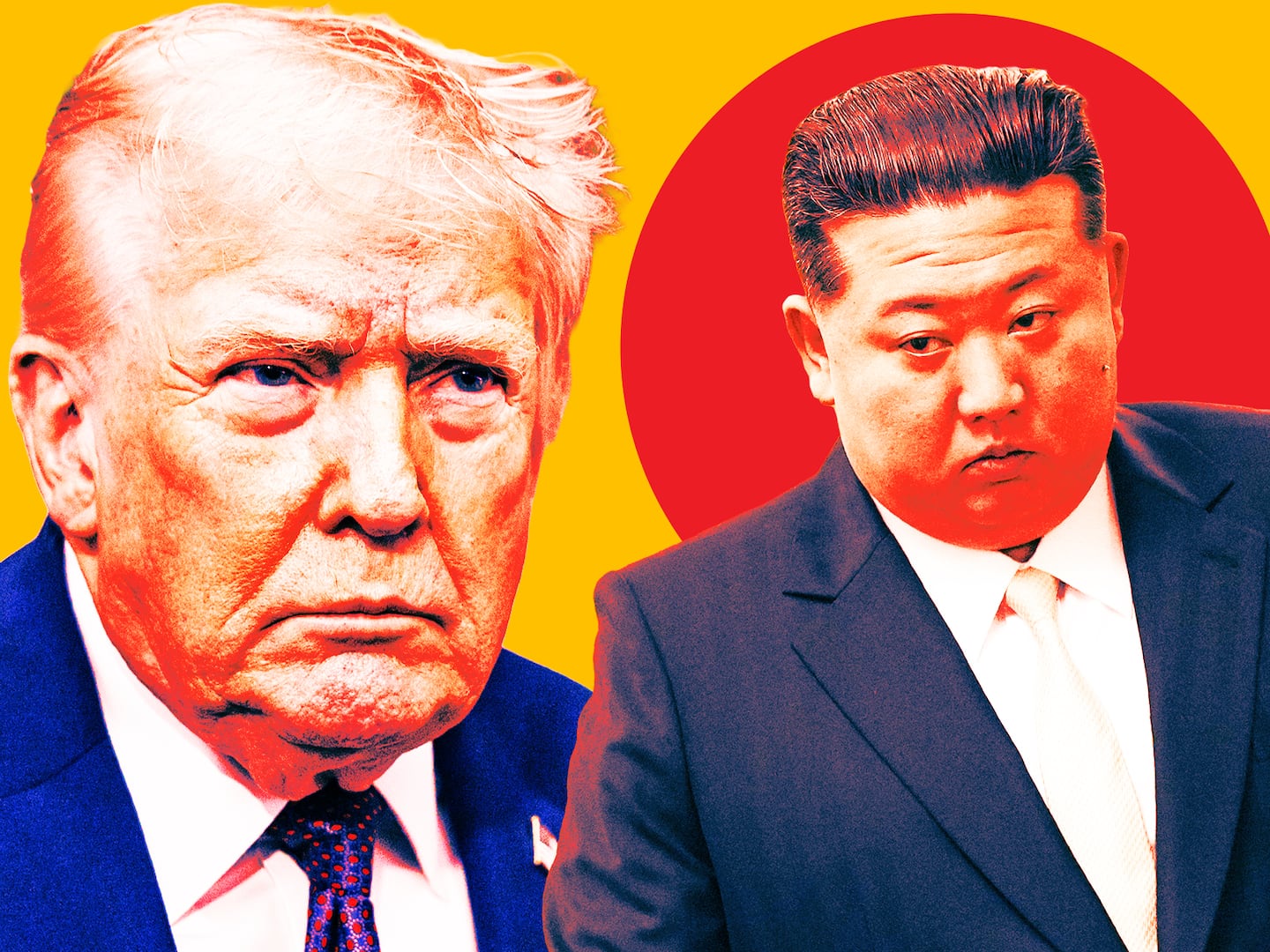For anyone who watched the House’s 2019 impeachment of Donald Trump over withholding military aid to Ukraine, it’s probably not a surprise that Rep. Jim Jordan (R-OH) wasn’t quite an unbiased investigator.
But a new book about Trump’s two impeachment trials details how Jordan worked to frame the Ukraine scandal as a nothing burger—even when he knew there was more damning information yet to come—and defended Trump’s stonewalling tactics, even when he disagreed and tried to convince the president to cooperate.
In Unchecked, Politico’s Rachael Bade and The Washington Post’s Karoun Demirjian lay out how Jordan made his way into Trump’s inner circle, became a key defender of the president, misled the media with strategic leaks, and defended Trump’s decisions to block key testimony.
Jordan’s staff did not reply to a request for comment.
In October 2019, Jordan knew Trump was considering a bombastic letter from White House counsel Pat Cipollone that would refuse to turn over documents and block testimony from certain administration officials, according to exclusive excerpts from the book that The Daily Beast obtained. But on the morning that the House’s impeachment panel was set to interview U.S. ambassador to the European Union Gordan Sondland, the Trump administration blocked Sondland’s appearance. And Jordan was just as surprised as everyone else.
“When Jordan walked into the SCIF with [Steve] Castor and [Mark] Meadows on Tuesday, October 8, the morning of Sondland’s scheduled testimony, they were shocked to discover that the ambassador wasn’t there. Just before seven a.m., Cipollone—on Trump’s orders—had instructed State Department officials to stop the interview from going forward. No one, however, had bothered to give Trump’s top defenders on Capitol Hill a heads-up. And Jordan and Castor were not happy,” an excerpt from the book reads.
Jordan and Castor, the GOP lead counsel for Trump’s first impeachment, knew Sondland’s testimony would be damning, that he planned to say the president had indeed engaged in a quid pro quo. But their plan was to try to catch Sondland in a lie—and then argue that none of his testimony should be trusted because he had theoretically perjured himself.
“It was a brazen strategy that showed once again how House Republicans were more concerned about coming up with ways to protect their party leader than actually learning the truth of what occurred,” the book reads. “But Sondland’s no-show had robbed them of a chance to test their new playbook.”
“As Jordan exited the SCIF, reporters swarmed, demanding to know why the administration had blocked Sondland’s testimony. Perturbed as he was, Jordan swallowed his frustration and loyally defended the White House’s move as justified,” the book continues. “The administration ‘decided not to have Ambassador Sondland appear today’ because of an ‘unfair and partisan process that [Chairman Adam] Schiff has been running,’ Jordan argued. Democrats were just trying to smear Trump thirteen months before his reelection ‘based on an anonymous whistleblower with no firsthand knowledge who has a bias against the president,’ he continued. They should release [Kurt] Volker’s testimony and acknowledge there had been no quid pro quo.”
According to the book, Jordan lied and said Republicans were looking forward to Sondland testifying, that they thought he’d “reinforce exactly what Ambassador Volker told us last week.”
The reality was far different. They knew Sondland was planning to testify to a quid pro quo. And when Jordan was finished trying to spin the media about the decision, he and his staff “raced up the marble spiral staircase, out of the Capitol, and into their waiting cars to speed across town and stage an intervention with Trump.”
“On top of canceling Sondland’s testimony, the White House, they had heard through the grapevine, was about to release the dreaded Cipollone letter aimed at shutting the whole probe down—the one GOP lawmakers had been trying to hold back all weekend,” the book continues. “Though members usually met Trump in the Oval Office alone, Jordan insisted Castor accompany them, hoping he could convince the president to allow administration witnesses to come forward.”
The book presents a less than flattering portrait of Jordan, who would likely be the Judiciary Chairman if the GOP takes back the House. He is instead consistently shown to be far more interested in defending Trump than getting down to the truth.
The book includes scenes like Jordan heading to the White House to read a transcript of Trump’s call with Ukrainian President Volodymyr Zelensky before it was released to the public, only to receive a partial account that excluded more concrete evidence of a quid pro quo. Trump’s team, Bade and Demirjian say, wanted House Republicans to go on the record defending Trump before they knew all the facts.
The book also details the time Jordan and GOP staff went through 53 pages of Volker’s WhatsApp messages about the Ukraine scandal. Volker was extremely active in communicating with State Department officials about Trump’s desire to withhold aid until Ukrainian officials opened an investigation into Joe Biden and his son, Hunter. While there were plenty of damaging exchanges, there were also some bright spots.
“Jordan knew the texts were bad,” the book reads. “But he relished a good fight, and he had already identified a failsafe in the missives: In one of them, Sondland had flatly refuted [Bill] Taylor’s suggestion that U.S. tax dollars were being used to help Trump’s reelection efforts, writing: ‘the president has been crystal clear no quid pro quo’s of any kind.’ Jordan knew that was the point he and his team would have to hit home over and over to protect the president. That, after all, was exactly how he viewed his job.”
So, as Volker was testifying behind closed doors, GOP staff cherry-picked the most vindicating messages and leaked them to ABC and Fox News. (That prompted Schiff’s staff to release a fuller version of the texts to the media showing that there were, in fact, plenty of damning exchanges.)
Still, at the end of the day, Jordan was in good spirits, believing he and the Republicans had won that round over Volker’s messages. But not everyone was convinced, the book shows.
As he exited the Capitol, Jordan got a call from Rep. Liz Cheney (R-WY), the No. 3 House Republican at the time. She had read the new reports with a more complete account of Volker’s texts—and she suddenly was concerned that Jordan’s biased perspective had infected his judgment overall.
“‘You said Volker’s testimony was good for us!’ she said, demanding an explanation,” according to the book. “‘What is up with these texts?’”









